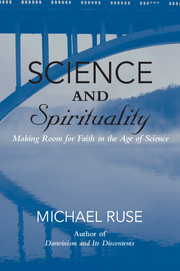Book contents
Conclusion
Published online by Cambridge University Press: 05 May 2010
Summary
What is the relationship between Christianity and today's science? It is obvious that there is no simple or single answer to this question. If one is thinking of the Christianity of our absent friends the fundamentalists, the Creationists, then there is simply massive conflict. You cannot believe in a six-thousand-year-old earth, a six-day creation, a worldwide flood, and at the same time accept modern physics, modern biology, modern geology. But fundamentalism is not the only form of Christianity and has little lien on the traditional form of the religion. If you follow the route marked out by Augustine and Aquinas, by Luther and Calvin, then the answer is very different. The basic, most important claims of the Christian religion lie beyond the scope of science. They do not and could not conflict with science, for they live in realms where science does not go. In this sense, we can think of Christianity and science as being independent, and we can see that those theologians who have insisted on the different realms were right in their view of the science-religion relationship.
This is not to say that there is no relationship at all between Christianity and modern science. Given that Christianity is, after all, a religion about the nature of this world and the place of human beings in it, such would be a very odd state of affairs indeed.
- Type
- Chapter
- Information
- Science and SpiritualityMaking Room for Faith in the Age of Science, pp. 234 - 236Publisher: Cambridge University PressPrint publication year: 2010

